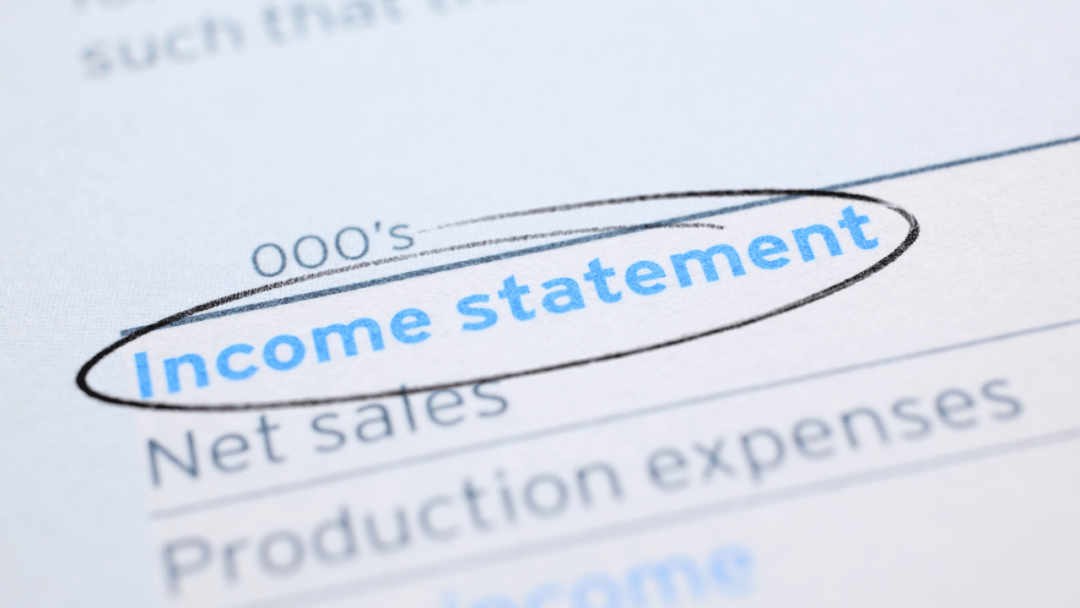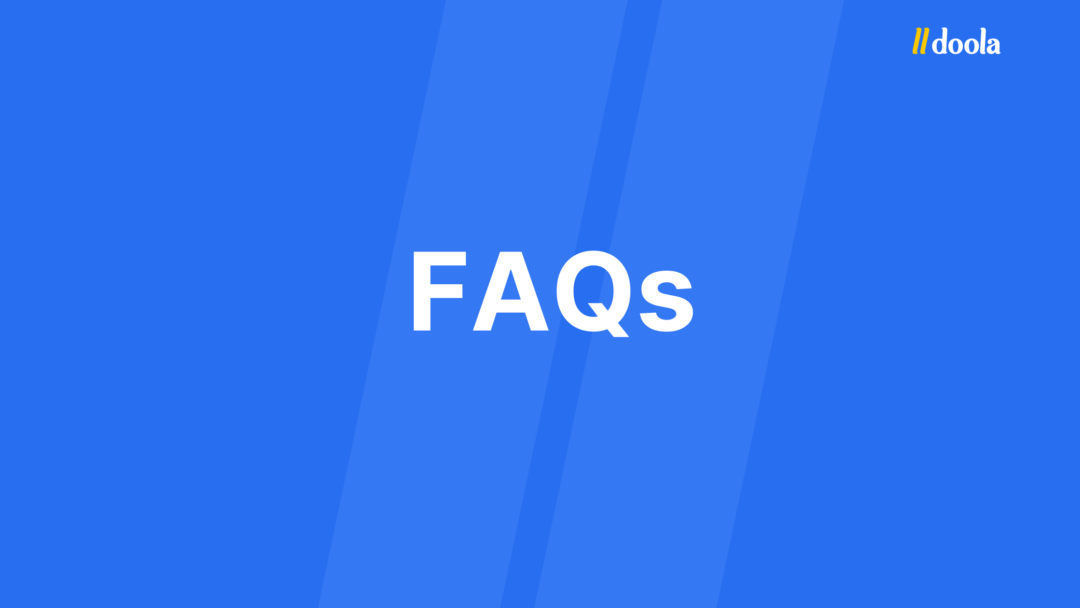Language:
Differences Between Personal and Business Income Statements

You’ve probably heard the term income statement tossed around — maybe by your CPA, during tax season, or in conversations about financial planning.
And let’s be real, most of us just nod along and leave it to the pros without giving it a second thought when we hear such terms.
Even if your accountant or bookkeeping software is doing a stellar job, understanding the basics — like what an income statement is (and why it matters) — puts you in the driver’s seat. Plus, blindly trusting anyone, no matter how skilled, isn’t the best approach when it comes to your finances.
In this blog, we’ll break down the difference between personal and business income statements, and show you how tools like doola Bookkeeping can simplify the process.
The more you understand, the better equipped you are to ask the right questions and take control of your financial decisions.
But first let’s start with the basics.
What Is an Income Statement?

An income statement, also known as a profit and loss statement (P&L), is a financial document that summarizes your income and expenses over a specific period — usually monthly, quarterly, or yearly.
In simpler terms, it tells you if you’re making more money than you’re spending or vice versa.
Where Do You Need Income Statements?
- When filing taxes.
- While preparing financial reports for your business.
- In discussions with your accountant, investors, or lenders.
- When applying for loans or pitching for funding.
What Is a Personal Income Statement?

A personal income statement is a financial document that helps individuals track their income and expenses over a specific period. It’s essentially a snapshot of your personal financial health, showing whether you’re living within your means or overspending.
What Does a Personal Income Statement Include?
- Income Sources: Salary, rental income, dividends, or any side hustles.
- Expenses: Housing costs, utilities, groceries, insurance, and discretionary spending.
- Net Income: The difference between total income and total expenses, indicating a surplus or deficit.
Purpose of a Personal Income Statement
The goal of a personal income statement is to help individuals:
- Budget effectively
- Identify areas of overspending
- Save for future goals like vacations, education, or retirement
What Is a Business Income Statement?

A business income statement, also known as a profit and loss statement (P&L), is a crucial financial document for any company. It provides a detailed breakdown of a business’s revenue, expenses, and profitability over a specific period.
What Does a Business Income Statement Include?
- Revenue Sources: Sales, services, or operational income.
- Operating Expenses: Rent, salaries, marketing, utilities, and other business-related costs.
- Net Profit or Loss: Revenue minus expenses, indicating financial health and performance.
Purpose of a Business Income Statement
The goal of a business income statement is to:
- Evaluate profitability
- Identify cost-saving opportunities
- Support decision-making for growth and investment
- Prepare for tax filings and compliance
Unlike personal income statements, business income statements are more detailed and must adhere to accounting standards.
Key Differences: Personal vs Income Statements
Here’s a quick comparison to help you understand the distinctions between personal and business income statements:

Examples of Each Statement
To help you understand the differences between personal and business income statements better, let’s break them down with an easy-to-follow example.
We’ll use the example of a coffee shop owner who also tracks their personal finances.
Personal Income Statement Example
Imagine you’re managing your personal finances for a month. Here’s what your personal income statement might look like:
Income Sources:
✅ Salary: $5,000 (your paycheck from a 9-to-5 job)
✅ Rental Income: $1,000 (income from renting out a property)
✅ Dividends: $200 (profits from your investments)
= Total Income: $6,200
Expenses:
✅ Rent: $1,500 (your home).
✅ Groceries: $400 (personal food and essentials).
✅ Utilities: $200 (electricity, water, internet).
✅ Entertainment: $100 (streaming services and weekend fun).
✅ Insurance: $150 (health and car insurance).
= Total Expenses: $2,350
Net Income:
Total Income ($6,200) – Total Expenses ($2,350) = $3,850 surplus
Business Income Statement Example
Now let’s shift to your coffee shop business. Here’s what a business income statement might look like:
Revenue Sources:
✅ Coffee Sales: $15,000 (drinks and pastries sold to customers).
✅ Catering Services: $2,000 (catering for office events).
✅ Merchandise Sales: $1,000 (mugs, tote bags, etc.).
= Total Revenue: $18,000
Expenses:
✅ Salaries: $5,000 (for your baristas and staff).
✅ Rent: $2,500 (for your coffee shop space).
✅ Utilities: $500 (electricity, water, internet for the shop).
✅ Supplies: $3,000 (coffee beans, milk, cups, etc.).
✅ Marketing: $1,000 (social media ads and promotional campaigns).
= Total Expenses: $12,000
Net Profit:
Total Revenue ($18,000) – Total Expenses ($12,000) = $6,000 profit
Learn more: Shopify Bookkeeping Guide: Tools and Tips for Store Owners
How a Bookkeeper Helps
A bookkeeper’s role is to organize, track, and categorize all income and expenses so your personal and business income statements are accurate and easy to understand.
Here’s how they manage these records:
For Personal Finances:
- Tagging income as “Salary,” “Dividends,” or “Rental Income.”
- Categorizing expenses like “Housing,” “Utilities,” and “Entertainment.”
- Preparing a summary to show your net savings or deficits.
For Business Finances:
- Recording revenue from different sources like “Coffee Sales” and “Catering.”
- Breaking down expenses into categories like “Salaries” and “Supplies.”
- Ensuring all costs are properly allocated for tax deductions.
doola: Your All-in-One Bookkeeping Solution

doola is more than just bookkeeping software. Our bookkeeping tools and capabilities are built to simplify accounting for you. Whether you’re just starting out or scaling your business, doola offers tools and support tailored to meet your unique needs.
Why doola Bookkeeping Stands Out:
✅ Expense Tracking Made Easy: doola categorizes expenses like marketing, shipping, and inventory costs, so you know where every dollar is going.
✅ Sales Tax Simplified: Managing sales tax across different states or countries is no longer a headache — doola handles it for you.
✅ Dedicated Human Support: Get a personalized account manager who knows the ins and outs of your bookkeeping system and is always ready to help.
✅ U.S. Business Bank Account Setup: For international sellers, doola helps you set up a U.S. business bank account, making it easier to manage finances.
✅ Custom Reports: Access profit-and-loss statements, cash flow insights, and financial forecasts that keep you in control of your business.
With a 4.6-star rating on Trustpilot and backing from industry giants like Y Combinator, doola is a trusted partner for any individual who wants to simplify their bookkeeping.
Simplify Your Personal and Business Income Statements With doola Bookkeeping

Managing personal and business income statements doesn’t have to be a confusing or time-consuming process.
Yes, there’s a lot to handle — from tracking expenses to categorizing income and staying tax-compliant — but with the right support, it becomes much simpler.
Whether it’s streamlining your business income statements or bringing clarity to your personal finances, doola Bookkeeping helps you stay on top of it all, so you can focus on building growth strategies for your business.
If you’re tired of juggling the details or unsure where to start, let doola guide you. Our experts have worked with countless entrepreneurs and know exactly what you need to simplify your finances.
Take the first step today. Book a demo with our experts and declutter your financial chaos.
FAQs

What is the purpose of an income statement?
Income statements provide a summary of income and expenses over a specific period, helping individuals or businesses understand their financial performance.
Why do personal and business income statements differ?
Personal income statements focus on individual finances, while business income statements track a company’s operations and profitability.
Can I use a personal income statement template for a business?
While you can, it’s not recommended. Business income statements require detailed categorization of expenses and revenues for tax and operational purposes.



